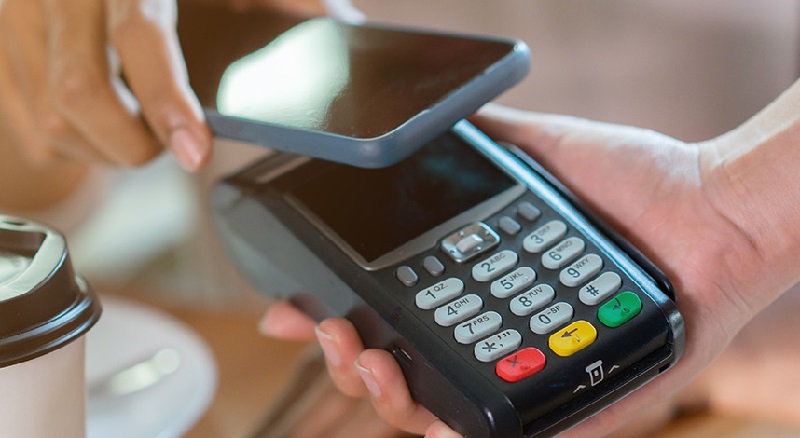The concept of a cashless society is no longer a distant future but an emerging reality, driven by advancements in digital payment technologies, smartphones, and internet connectivity. A cashless society refers to a financial ecosystem where physical cash is replaced by digital transactions, such as mobile payments, online banking, and contactless card payments. This paradigm shift is reshaping how individuals, businesses, and governments handle money, offering benefits such as convenience, security, and efficiency, while also presenting unique challenges.
The Driving Forces Behind the Cashless Revolution
Several key factors are contributing to the rapid move toward a cashless society. These include the growing use of mobile payments, government policies, and the rise of fintech innovations.
1. Proliferation of Mobile Payment Systems
Mobile payment platforms like Apple Pay, Google Pay, Alipay, and WeChat Pay have revolutionized how people transact by offering fast, secure, and convenient payment methods. Consumers can make payments using their smartphones without the need for cash or cards, a trend that is accelerating across developed and developing markets.
- In China, over 80% of transactions are conducted through Alipay and WeChat Pay, making China one of the closest examples of a cashless society.
- In India, mobile payment platforms like Paytm, Google Pay, and PhonePe have gained immense popularity, particularly after the government’s demonetization drive in 2016 and the subsequent push for digital payments.
- In Africa, platforms like M-Pesa are leading the way in mobile payments, providing essential financial services to the unbanked and underbanked populations, allowing them to transact digitally.
2. Government Initiatives and Policies
Governments worldwide are advocating for cashless transactions to increase transparency, combat fraud, and reduce the costs associated with printing and managing physical currency. Countries like Sweden and South Korea have been at the forefront of this shift, with Sweden expected to be one of the first countries to go fully cashless in the next decade.
In India, the government’s promotion of digital financial inclusion through initiatives such as Digital India and Bharat QR Code has encouraged more businesses and consumers to adopt digital payment methods.
3. Rise of Fintech and Digital Banking
Fintech companies have played a pivotal role in accelerating the transition to a cashless society by developing innovative solutions like digital wallets, peer-to-peer (P2P) transfers, and cryptocurrency platforms. Digital-only banks, such as Revolut, Chime, and Nubank, are reshaping traditional banking by offering digital services that enable users to manage their finances entirely through their smartphones.
Fintech solutions not only provide alternative payment methods but also offer tools for saving, investing, and budgeting, giving consumers greater control over their finances.
Benefits of a Cashless Society
The move toward a cashless society offers numerous advantages for individuals, businesses, and governments. These benefits include enhanced convenience, improved security, and economic efficiency.
1. Convenience and Speed
A cashless society provides consumers with unparalleled convenience, allowing them to make payments anytime, anywhere. Whether it’s paying for goods in-store using contactless payments or splitting a bill with friends through a mobile app, cashless transactions are fast, seamless, and reduce the need for physical currency.
2. Increased Security
Digital payments are often more secure than cash transactions, which can be prone to theft, loss, or fraud. Mobile payment systems come with multi-layered security features, such as biometric authentication (fingerprint or facial recognition), encryption, and tokenization, making them harder to compromise.
Moreover, in a cashless society, there is less reliance on carrying physical cash, reducing the risk of street crime or burglary.
3. Transparency and Reduced Corruption
One of the most significant advantages of digital transactions is the transparency they offer. Every transaction in a cashless society is recorded and traceable, reducing the chances of tax evasion, money laundering, and corruption. Governments benefit from this transparency as it improves tax compliance and helps monitor illegal activities.
4. Economic Efficiency
For businesses, cashless payments reduce the overhead associated with handling cash, such as counting money, managing change, or dealing with counterfeit bills. Digital payments also streamline accounting processes by automatically recording transactions, making it easier to track revenue and expenses.
On a national level, the shift away from cash reduces the cost of printing, minting, and distributing currency, resulting in significant savings for governments.
Challenges of Moving Toward a Cashless Society
Despite its many benefits, the transition to a cashless society is not without challenges. Issues of inclusivity, data privacy, and technology dependency must be addressed to ensure a smooth transition.
1. Digital Divide and Financial Exclusion
One of the biggest challenges in moving to a cashless society is ensuring that everyone has access to the necessary technology and infrastructure. The digital divide—the gap between those with access to modern technology and those without—can leave certain groups at risk of being excluded from the financial system.
In developing countries or rural areas, where internet access and smartphone ownership may be limited, reliance on cash remains essential. Elderly individuals or those with limited digital literacy may also struggle to adapt to a cashless world, leading to potential financial exclusion.
2. Data Privacy and Cybersecurity Concerns
A cashless society is inherently data-driven, with each transaction creating digital records that can be tracked and stored. This raises concerns about data privacy and how personal information is used by financial institutions, tech companies, and governments.
Moreover, as digital payments grow, so does the risk of cyberattacks. Digital payment systems can be vulnerable to hacking, data breaches, and fraudulent activities, leading to potential financial losses for individuals and institutions.
3. Dependency on Technology
A cashless society relies heavily on the availability of technology, including stable internet connectivity, payment processing infrastructure, and electronic devices like smartphones. In the event of technical failures—such as network outages or system crashes—users may find themselves unable to make payments, disrupting daily life and economic activities.
Additionally, in regions prone to natural disasters or where electricity and internet services are unreliable, maintaining cashless systems can be challenging.
4. Cultural Resistance
For many societies, cash is deeply ingrained in daily life, and transitioning to a cashless society may meet cultural resistance. Cash offers anonymity, tangibility, and familiarity, which some people prefer over digital alternatives. Convincing individuals and businesses to adopt digital payment methods can be difficult, especially if they are skeptical about the security and reliability of cashless transactions.
The Global Cashless Landscape: Varying Degrees of Adoption
The progress toward a cashless society varies across the globe, with some countries embracing the concept more rapidly than others. Countries like Sweden and South Korea are leading the charge, where cash usage is minimal, and most transactions are digital. In contrast, countries in Africa, Southeast Asia, and Latin America still rely heavily on cash due to infrastructural limitations and the presence of large informal economies.
1. Sweden: The Pioneer of Cashless
Sweden is often hailed as a pioneer in the cashless revolution, with over 80% of all retail transactions being digital. The Swedish government, along with its central bank and financial institutions, has actively promoted the use of digital payments, and many businesses have stopped accepting cash altogether. Sweden is expected to become the first fully cashless nation by 2024.
2. China: A Cashless Economy Driven by Super Apps
China is another leader in the cashless revolution, driven by the rise of super apps like WeChat Pay and Alipay, which dominate the payments landscape. From street vendors to large businesses, most merchants accept mobile payments, and cash transactions are becoming increasingly rare.
3. India: Rapid Growth in Digital Payments
India’s push for a cashless society was accelerated by the 2016 demonetization, which encouraged the adoption of digital payments. Platforms like Paytm, Google Pay, and PhonePe have gained significant traction, and the government continues to promote digital financial inclusion through initiatives like Unified Payments Interface (UPI).
A Cash-Lite or Cashless Future?
While the world is moving closer to a cashless society, the journey is complex, with varying levels of adoption across different regions. While some countries are almost entirely cashless, others are still far from it due to technological, cultural, or infrastructural challenges.
The future may see a cash-lite society rather than a fully cashless one, where digital payments dominate but cash still has a role to play for specific segments of the population. Ultimately, the success of a cashless society depends on addressing issues of financial inclusion, data privacy, and technology access, ensuring that the benefits of digital payments are shared by all.
As technology advances and the digital ecosystem grows, the world will continue to experience the profound impact of this paradigm shift in financial transactions.










